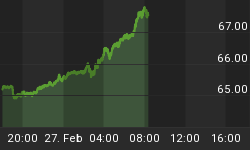The mother of all investments is space: the origins of everything, including our huge and lucrative bets on the Internet of Everything and Artificial Intelligence. Coming in at an estimated $340 billion dollars already, some believe this industry can easily hit $1 trillion, and the more adventurous will already be asking how to get in on it.
Bank of America Merrill Lynch sees the space industry growing eight-fold over the next three decades and reaching at least $2.7 trillion. That’s nearly triple Morgan Stanley’s estimate of $1.1 trillion by 2040.
Morgan Stanley justifies its multi-trillion-dollar price tag with confidence in the rapid increase in demand for data and falling costs of actually getting into space. Bank of America believes the same, citing “a raft of new drivers” and disruptive technologies are leading us to “Space Age 2.0.”
Both are looking at innovations like Space X’s reusable rockets and low-cost launch facilities from companies like Rocket Lab.
Of note: More than $16 billion has been invested in space startups since 2000. So far, 16 out of the world’s 500 richest billionaires have investments in the space industry. And human missions to Mars are planned between the years 2024-2030.
And for investors who are wondering which door to choose with all the possibilities, one place to start would be the obvious launches and even more obvious, SpaceX, if you can find the way in.
SpaceX isn’t public, and it might never hold an initial public offering (IPO). If Elon Musk takes it public, it would be another first for a company with a lot of them already. The first space launch company to IPO would be huge, but for now there are no indications Musk wishes to go this route.
As a private company, it’s doing just fine. Better than fine, actually, being the first to launch a payload into orbit, land it back on Earth and even re-launch a used rocket. It’s even planning to colonize Mars. Related: The Billionaires Racing To Conquer Space
And there’s a good reason SpaceX is likely to remain private for the foreseeable future: If investors get their hands on it, they have a tendency to scuttle progress in favor of profit. That might end up meaning no colonization of Mars.
But there’s a back door, and it leads to Alphabet, the parent company of Google, which now owns a 7.5-percent stake in SpaceX.
One of the biggest space investor-cheerleaders has been Dylan Taylor, founding partner at Space Angels Network and die-hard SpaceX fan. Speaking to CNBC, Taylor described the launch of SpaceX’s Falcon Heavy rocket as “the most significant launch since the first shuttle launch nearly four decades ago.”
He’s also big on a company called Vector Launch, co-founded by Jim Cantrell—the man who helped Musk found SpaceX in 2002. Vector would be a good in terms of small satellite launch services and it recently inked deals for five orbital launches. Related: Bitcoin’s Breakout Is Not As Bullish As it Seems
Then there’s data, or Earth observation—the business of satellites, imagery and connecting people—and space tourism, which alone is expected to grow at a CAGR of +14 percent by 2021.
When it comes to data, again it’s Alphabet.
So if you’re thinking ‘space’, you don’t have to get too creative. Anyone working on artificial intelligence and big data will be part of the space race and the visible back door to this industry.
And once we’re definitively in space, natural resource extraction will be the next big thing, and it’s farther along that you might think …
By Michael Kern for Safehaven.com
More Top Reads From Safehaven.com:
















